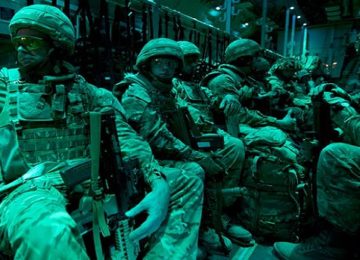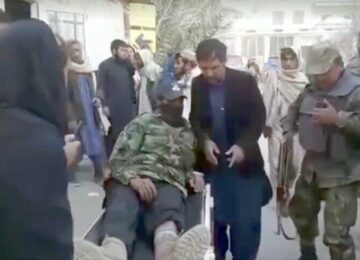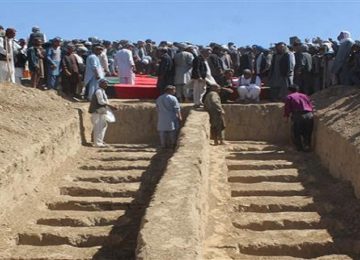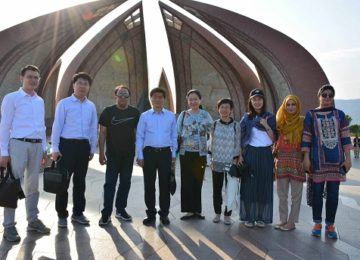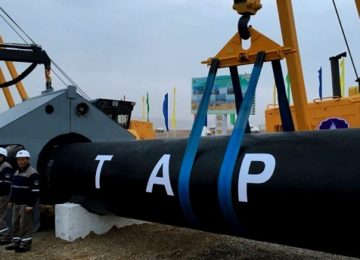The suicide bombing and hostage taking at a government building in Jalalabad is the latest in a series of attacks, attributed to State terrorists, that have killed or wounded hundreds of people in eastern Afghanistan since mid-June.
The Isis offensive appears to be partly in response to stepped-up operations by US Special Forces and the Afghan army to root out its fighters in Deh Bala and other rural districts of eastern Nangarhar province and thereby disrupt supply lines reaching into Pakistan.
But the terrorists’ lethal escalation including Tuesday’s assault has also coincided, probably deliberately, with signs of progress in renewed efforts to halt the 17-year-old, US-orchestrated war between the Afghan government and the Taliban, the country’s principal Islamist insurgent group.
Political and territorial rivalry between the Isis affiliate in Afghanistan – known as the Islamic State Khorasan Province (ISKP) – and the Taliban has been growing since 2014. Analysts say the ISKP, hostile to any accommodation with the west and its “apostate” proxies, has been intent on disrupting peace initiatives before they can get off the ground.
During a successful three-day ceasefire last month, Taliban fighters shouldered arms and entered towns and cities for impromptu meetings with local officials and elders. Ashraf Ghani, Afghanistan’s president, looking ahead to parliamentary elections in October, reportedly hopes to agree another, longer cessation of hostilities in August.
Meanwhile, it was revealed last week that senior US officials recently met Taliban leaders in Qatar in an apparent bid to kickstart a peace process. Past US administrations had always refused the insurgents’ demand for face-to-face talks, insisting they deal with the government in Kabul. Now, follow-up meetings have been planned.
Given the confusion and ambiguity surrounding US Afghan policy since Donald Trump took office, this sudden shift should not be interpreted as unusual. Trump has vowed to eliminate Isis, which unlike the Taliban presents a global threat. But he has repeatedly expressed scepticism about continuing American involvement in Afghanistan, implying he would like to withdraw.
Trump has particularly objected to the cost. The US has spent more money, adjusted for inflation, on Afghanistan since 2001 than it did on the Marshall Plan for Europe after 1945. Yet bowing to military advice, Trump has sent troop reinforcements and asked Nato to follow suit. The UK recently did so.
The US operations in Deh Bala were designed to curb the ISKP’s ability to attack cities such as Jalalabad – an aim that seems to have signally failed. Deh Bala adjoins Achin district, where Trump ostentatiously dropped a Moab, or massive ordinance air blast – the “mother of all bombs” – on Isis hideouts last year. His claims of success were subsequently mocked in an ISKP video.
Analysts said American concern about the ISKP was shared by Iran and Russia, which have reportedly supplied arms and logistical help to the Taliban. China, always mindful of its regional economic interests, was said to share worries the ISKP could weaken the already divided Taliban leadership and reduce its ability to strike a lasting peace deal.
Despite the fact it has also been split, into eastern and northern factions, the ISKP was believed to have been strengthened by Taliban defectors, fighters displaced from Iraq and Syria, and militants from Sudan, Chechnya, Uzbekistan and Tajikistan. Its funding supposedly comes from private donors, Arab Gulf states and informal local taxes.
According to Sudha Ratan of Augusta University, India and Afghanistan see the ISKP and its 3,000-5,000 fighters as a “breakaway faction” of the Tehreek-e-Taliban (TTP), or Pakistani Taliban, allegedly groomed by the ISI, Pakistan’s intelligence service. Pakistan has denied the charge. But such claims and counter-claims underscore the challenge facing Pakistan’s prime minister-designate, Imran Khan, who has previously been accused of Taliban sympathies but has more recently said he wanted better relations with Kabul.
The ISKP’s mostly foreign origins, its extreme brutality – including beheadings and forcing victims to sit on explosives – and its documented, systematic use of rape and abduction in terrorising women and girls have done much to alienate the Afghan civilian population.
Now, in a strange twist, the US and the Afghan government appear to be relying on their bitter Taliban enemies to help them vanquish this greater evil and simultaneously end the war.
Source: The Guardian
Disclaimer: Views expressed on this blog are not necessarily endorsed or supported by the Center for Research and Security Studies, Islamabad.




